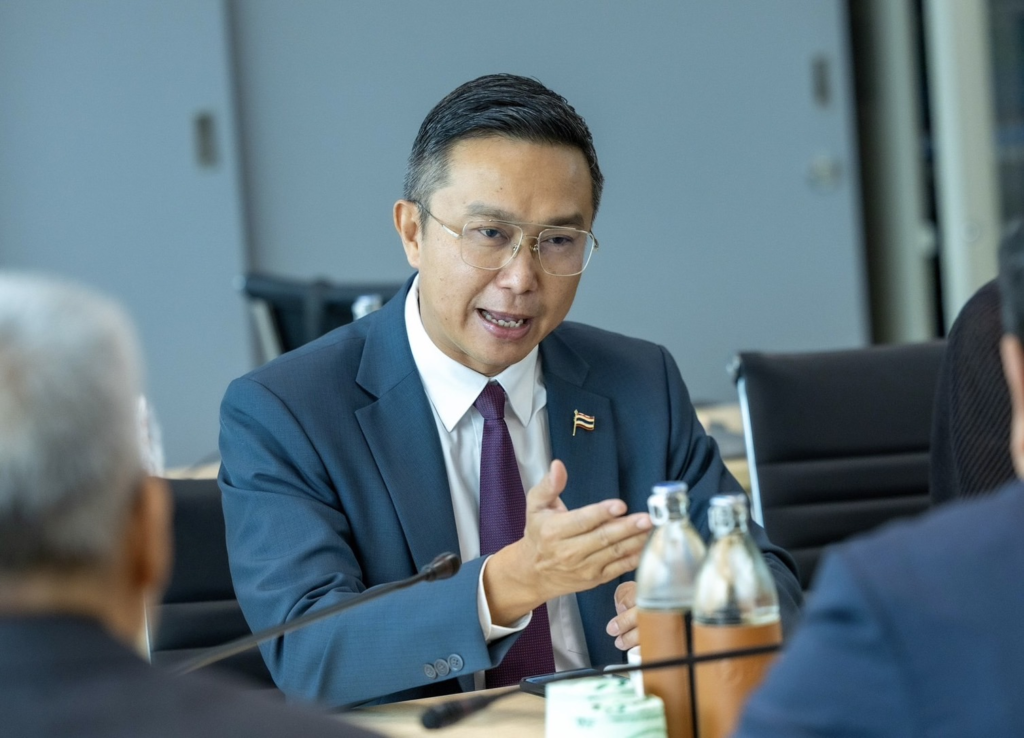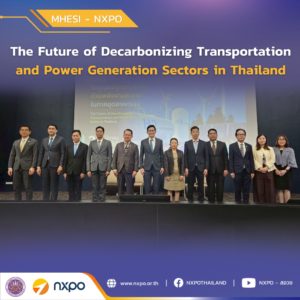NXPO recently conducted an analysis on the implications of Donald Trump’s landslide victory in the U.S. presidential election on 5 November 2024. Trump’s return, marked by policies that differ sharply from those of President Joe Biden, is expected to shift priorities toward U.S. interests over multilateral cooperation.

On 10 November 2024, Dr. Surachai Sathitkunarat, President of NXPO, revealed findings from the NXPO International Partnership Division’s analysis on Donald Trump’s America First policy. The analysis suggests that the U.S. science and climate policies will likely be affected, as seen during Trump’s 2017-2021 presidency. Past actions included budget cuts for research and development as well as changes in science-related officials.
“With a potential Republican majority in both the House and Senate, Trump would hold substantial power in reshaping U.S. science and research policy,” Dr. Surachai noted. “This could impact U.S. science diplomacy and its leadership in international scientific collaborations.”
While shifts in science and climate policies are expected, NXPO anticipates a heightened focus on technology development, especially in areas of strategic importance and national security such as artificial intelligence (AI), automation, defense, and semiconductor and chip technologies. The U.S. is likely to intensify trade tensions with China, proposing a tariff increase on Chinese imports from 19% to 60% and curbing China’s access to advanced technologies—especially in semiconductors critical for AI and advanced defense systems.
Dr. Surachai also highlighted the likelihood of continued supply chain decoupling, with production bases moving out of China and efforts to relocate manufacturing to the U.S. Under Trump’s “America First” strategy, the “friendshoring” approach championed by the Biden administration may be reversed and a 10% tariff on imports from all countries will be proposed. Thailand, as a longstanding ally and one of the 16 major non-NATO allies of the U.S., should closely monitor U.S. foreign policy under the new administration to anticipate any effects on trade and bilateral relations.
On 5 August 2024, Ms. Supamas Isarabhakdi, Minister of Higher Education, Science, Research and Innovation (MHESI), and H.E. Mr. Robert F. Godec, U.S. Ambassador to Thailand, signed an extension of the Thailand-U.S. Science and Academic Collaboration Agreement, originally established in 2013, for another 10 years. Under this agreement, both parties are committed to continuing cooperation in priority areas through diverse collaborative activities based on equality and mutual benefit. The agreement’s scope has been broadened to promote a more inclusive scientific research community, support the participation of researchers and organizations from all sectors, and protect intellectual property.
However, Dr. Surachai noted that Thailand must prepare for potential shifts by fostering international cooperation in science, research, and innovation with neighboring and partner countries within and outside the region, to mitigate any impact from a reduced U.S. global presence in areas like clean energy and climate change. Maintaining balanced relations amid geopolitical tensions is essential, as the U.S. remains a vital export destination for Thailand, with mutual trust critical to stable trade relations.
“Regardless of U.S. policy direction, Thailand must leverage science, technology, and innovation to drive sustainable development and achieve status as a developed, innovation-driven economy,” Dr. Surachai concluded. “This requires the collaboration across sectors on attracting foreign investment in strategic industries, developing a high-skilled workforce, advancing R&D, and aligning research funding to competitiveness enhancement. SMEs should be empowered as growth engines, while an innovation ecosystem that includes the grassroots economy should be developed to enhance Thailand’s global competitiveness and foster a sustainable creative economy.







